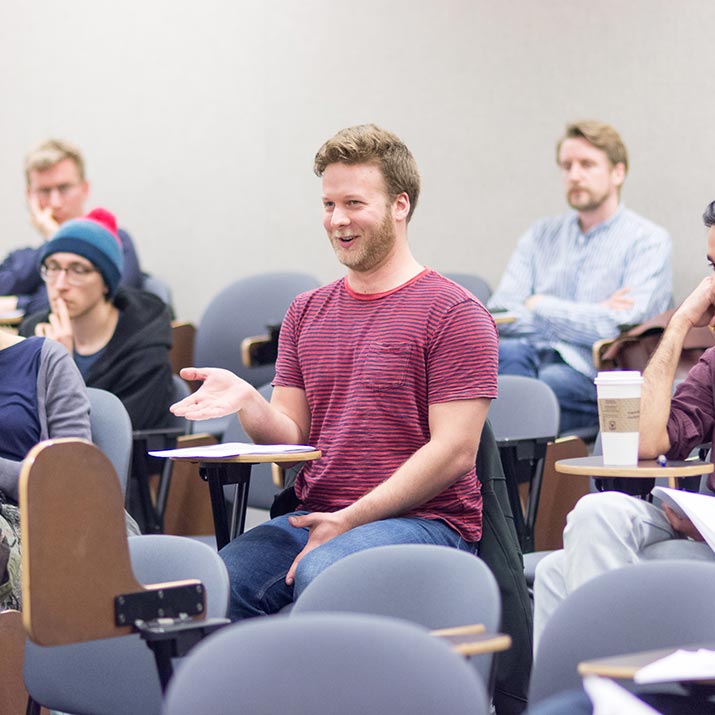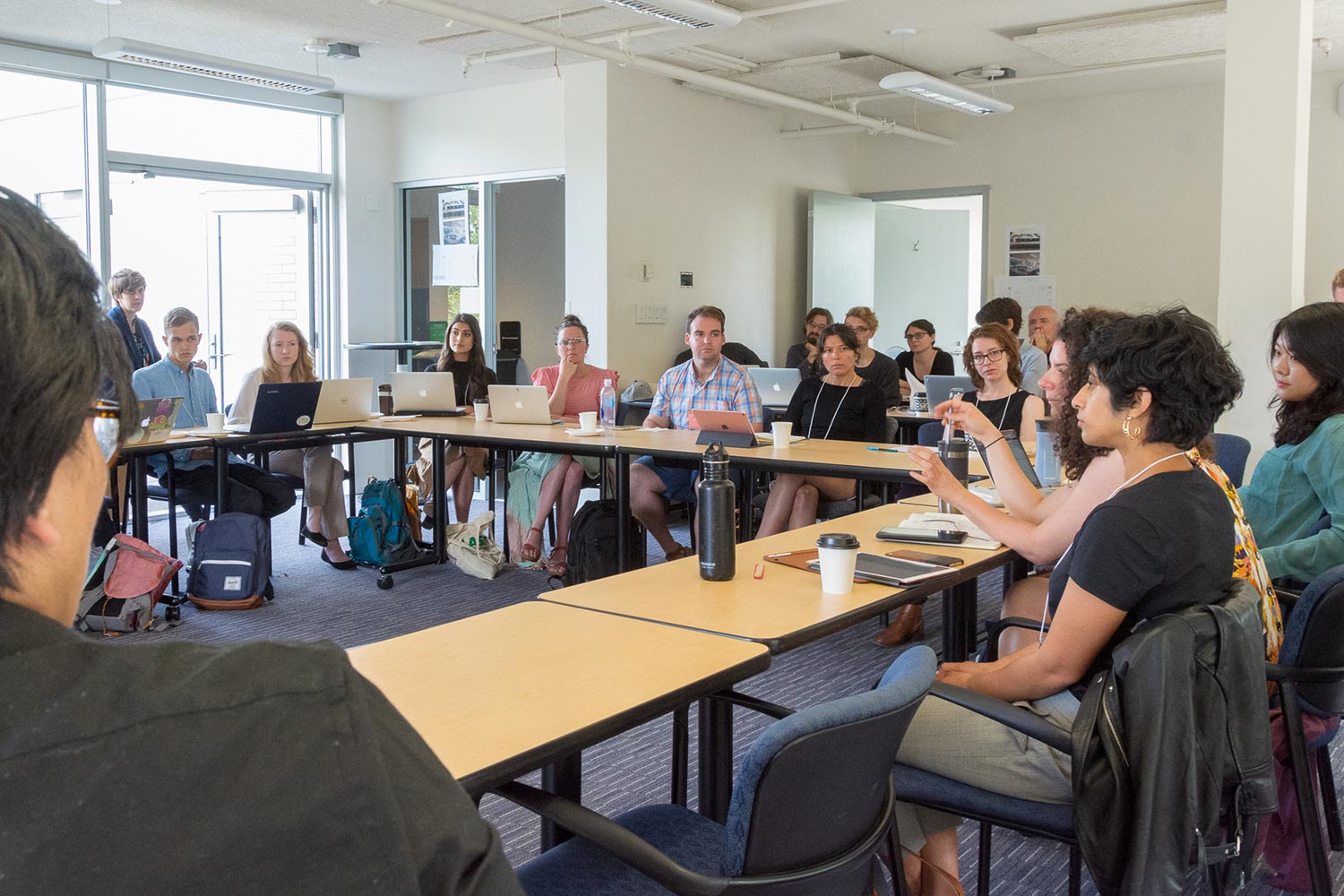What can we know? How should we live our lives?
Bachelor of Arts in Philosophy
These deceptively simple questions do not have easy answers. A BA in Philosophy will help you develop the analytical, critical-reasoning, problem-solving, and communication skills needed to approach these questions in a clear-eyed way. These skills are not only helpful for graduate studies in Philosophy; they are some of the most valuable transferable skills for any profession.
Program Options
First-Year Philosophy
(Please note that courses offered by the Vancouver campus are denoted with ‘_V‘ in Workday, e.g. PHIL_V 100.)
No 100-level Philosophy courses are requirements for our minor, major, combined major, or honours programs. However, students who are curious about Philosophy may find the following general guidelines helpful:
- Phil 100 is a full-year course that combines all of the topics typically taught in Phil 101 and 102. The benefits of the full-year commitment include getting to know and work with the instructor and fellow students for two terms.
- Phil 101 is typically oriented towards introductory topics related to metaphysics, epistemology and philosophy of mind.
- Phil 102 is typically oriented towards introductory topics related to ethics, political and social philosophy.
Despite the numbering, you can take either of Phil 101 or Phil 102 without taking the other, and you can take them in any order. Also: some sections of Phil 101 and 102 are offered in a pure lecture format (3 lectures / week), while others are offered in a lecture and discussion format (2 lectures + 1 discussion / week). Phil 100 is only offered in the lecture and discussion format (2 lectures + 1 discussion / week).
In addition to these three Introduction to Philosophy courses, we offer two courses on reasoning at the first-year level:
- Phil 120 is concerned with formal reasoning and critical thinking. This course is available both in lecture format and distance education format.
- Phil 125 is concerned with scientific reasoning and critical thinking. This course is only available in lecture format.
To see our entire course catalogue, please check out our Courses page.


Philosophy will help you to be a better thinker in whatever career you choose; it’s a great foundation and preparation for working in many different settings. Don’t think only of whether you want a job teaching philosophy, see it as an entry point to many career paths, and as great training to help you excel at whatever you choose.
Program Outcomes
Students with a major in philosophy at UBC will be able to:
- Explain philosophical texts and positions accurately, to identify and apply research methods consistently and to articulate and defend precise positions.
- Apply philosophical learning to important public issues and articulate why philosophical understanding is valuable in such debates.
- Develop their own areas of interest and investigate them from various perspectives.
- Write a research paper that engages with primary and secondary literature.
- Recognize and articulate fundamental questions about what exists, what we can know and how we should live our lives. Understand influential attempts to answer such questions and evaluate their advantages and disadvantages.
- Acquire competence in translation, interpretation, and proof in sentential and predicate logic and understand how these processes help evaluate arguments.
- Understand and critically engage with historical and contemporary philosophical texts.
- Identify central concerns and methods of philosophy in its historical development. Explain the relations between those eras of philosophy and contemporary philosophy.
- Show sensitivity to issues of translation, textual transmission and the historical and cultural context in which philosophical ideas develop.
- Recognize the existence of multiple philosophical traditions and reflect on the cultural specificity of some of their own concepts and values.
- Explain and discriminate between major approaches to moral philosophy such as consequentialism, deontology and virtue ethics.
- Explain and discriminate between major approaches to political philosophy such as Libertarianism, Marxism, Liberalism and Communitarianism.
- Explain epistemological concepts such as the nature of knowledge, justification, evidence and skepticism.
- Explain metaphysical concepts such as necessity, reality, time, God and free will, and evaluate major philosophical positions in relation to each.
More about Philosophy
Philosophy doesn’t stop with questions like What can we know? How should we live our lives? Those quickly give rise to others. Can we ever have absolutely certain knowledge? What constitutes a good reason for believing something? Must we always have evidence in order to know? Are there things about the world that are, in principle, impossible to know? Are mind and body distinct? Are people ever really free? Is there a God? Do numbers exist? Is beauty in the eye of the beholder? Why should we obey the law? Under what conditions is it right to restrict a person’s liberty? Is capital punishment immoral? Do trees have rights? How can moral disagreements be rationally settled? Which takes precedence over the other — the Right or the Good? What is truth? Is the sentence “This sentence is false” true or false?
These questions eventually generated the main great subdisciplines within philosophy: epistemology (the theory of knowledge), metaphysics (the theory of being), logic (the theory of reason and of inference), value theory (including ethics, politics and aesthetics) and the history of philosophy.
Learn more by taking a class or talking with one of our advisors.





